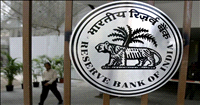GST all set for midnight launch
30 Jun 2017
The country is all set for the biggest indirect tax reform in history with the nationwide launch of the goods and services tax (GST) at midnight tonight, heralding a new era of faster and cheaper movement of goods and services across the country, and thereby helping to boost India's GDP growth by 1-2 percentage points.
 And, despite protests by some opposition parties, including the Congress, Trinamool Congress and the Left, over the way the tax reform is implemented, parties have generally welcomed the new tax regime.
And, despite protests by some opposition parties, including the Congress, Trinamool Congress and the Left, over the way the tax reform is implemented, parties have generally welcomed the new tax regime.
They have decided to boycott the midnight inaugural in Parliament saying that pushing through of the biggest economic reform without preparations would bring hardships to small businesses.
Finance minister Arun Jaitley has asked opposition parties to reconsider their decision to skip the midnight GST launch saying they are all party to the indirect tax reform and cannot run away from it.
A successful implementation of GST would give a strong signal to investors – both domestic and foreign- about the government's ability and willingness to support business, besides bringing in changes in the tax structure which will have long term positive effects on the economy.
Currently, each state taxes goods that move across its borders at various rates, leading to multiple taxation.
The proposed dual GST model (central GST and state GST) proposes to replace around 29 state and central taxes and tariffs for a single tax at the point of sale. The current combined centre and state statutory rates for most goods works out to be 26.5 per cent but GST is expected to bring it down to 18-21 per cent.
The present taxation rate peaks at 26.5 per cent (Cenvat of 14 per cent, and VAT of 12.5 per cent) apart from the state level corporate tax of 2 per cent for transferring inter-state goods.
A lower tax regime combined with the removal of a plethora of border taxes is expected to give a big boost to logistics industry. As per Care Ratings report, logistics industry is projected to grow at a compounded annual growth rate of 15-20 per cent between 2015-16 and 2019-20, will get a further boost.
Along with lowering of costs it would save time as a one-nation-one- tax GST structure can massively reduce the long and winding queues at border check-points and other entry points within and between states.
An orderly and timely movement of goods will help trade and industry rationalise and restructure warehouse operations and thereby lower logistics and infrastructural costs.
It is estimated that trucks carrying goods have to idle about 30-40 per cent of the time due to long queues for paying entry tax, local body tax, Octroi and other hurdles, leading also to huge man-hour and fuel losses.
Since GST will be levied on goods transportation and full credit will be available on interstate transactions, logistic cost is expected to come down by 1.5-2 percent of sales due to warehouse optimization and the resultant lower inventory cost.
According to a recent World Bank report, corporates can save up to 40 per cent of their logistic costs incurred at check-posts and toll plazas.
According to the report, the higher growth of the logistic industry will be driven by e-commerce, GST rollout, government focus on local manufacturing, the new national integrated logistic policy, and 100 per cent FDI in warehouses, food storage facilities etc.
The implementation of GST will do away with the need for maintaining warehouses nationwide, besides keeping 20-30 warehouses and an equal number of carry & forwarding agents in each state.
While GST may push up inflation in the short term because the price of some goods will rise, economists say it will boost business activity and deter tax evasion. About 150 countries worldwide have some form of GST or VAT (Value Added Tax), according to the Organisation for Economic Cooperation and Development.
Addressing representatives of trade and industry at a meeting on Thursday, finance minister Qarun Jaitley asked them to pass on the benefits arising from the implementation of GST to consumers in a transparent manner.
I his opening remarks at the meeting, the finance minister said overall incidence of tax after implementation of GST will be less especially in case of the consumer goods than the present incidence of tax, therefore, it is imperative on part of the trade and industry to pass on these benefits to the consumers at large.
Asserting that GST will not have any inflationary impact, he asked representatives of trade and industry to inform, educate and explain to their distributors, retailers and consumers at large about the positive impact of GST, especially on the price front.
The representatives of trade and industry on the other hand congratulated the government for its bold initiative by bringing historical indirect tax reform which will help not only consumers but also boost the prospects of growth of Indian economy. They assured the government that benefit of price reduction would be passed on the consumers. They also put forward their concerns and asked the government to issue certain clarifications to remove any doubt or confusion among the traders.






























